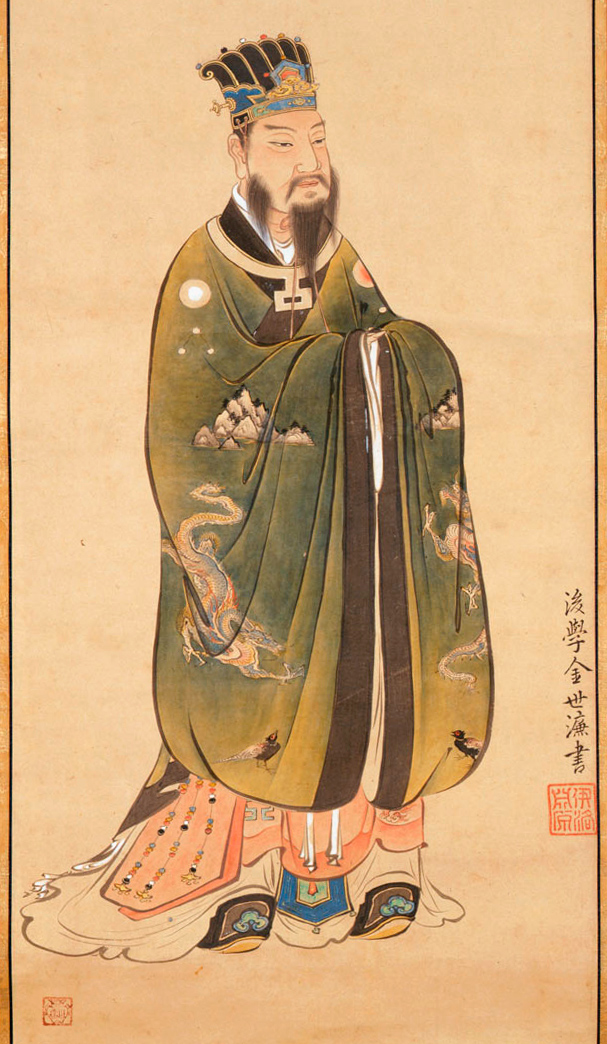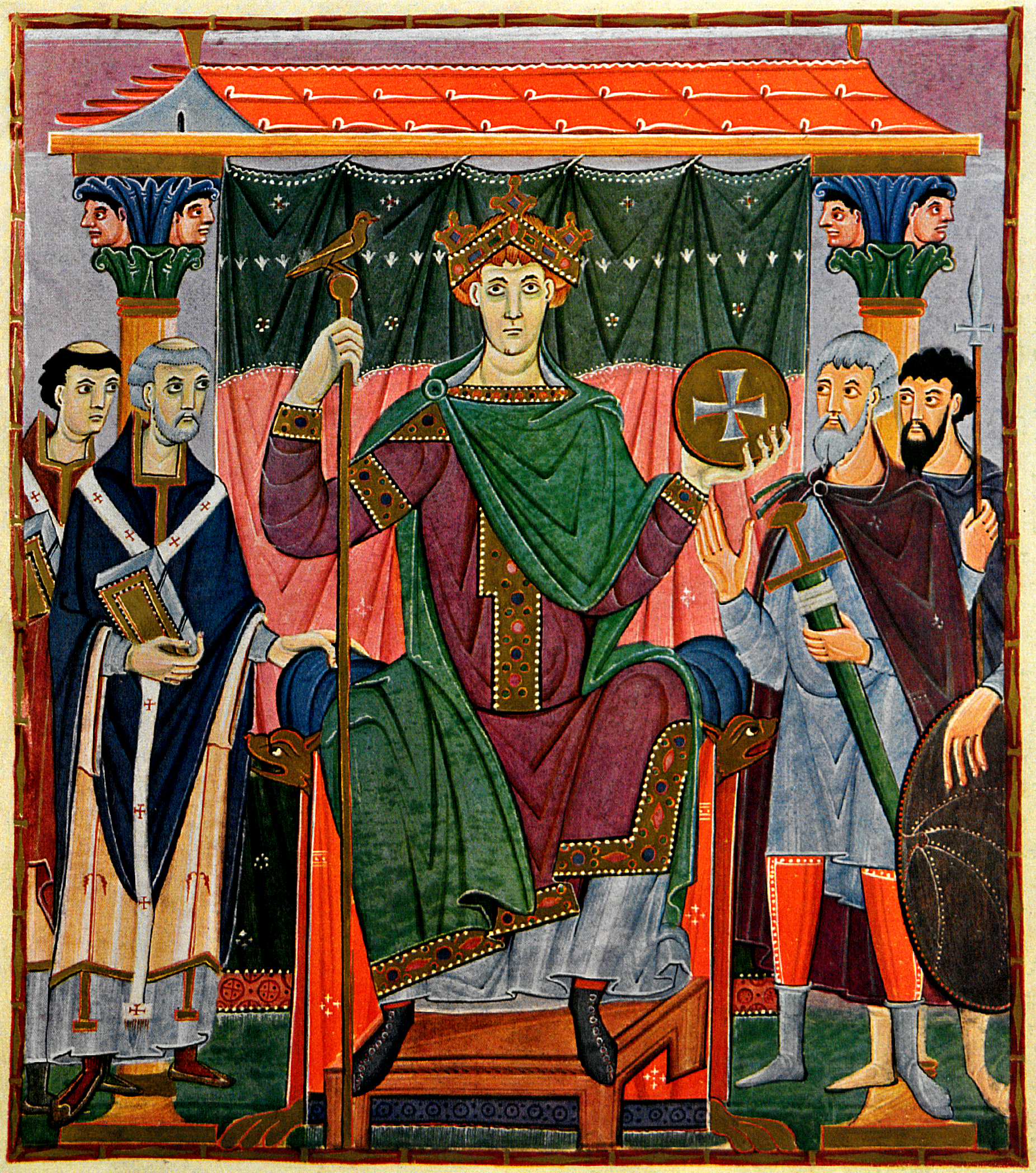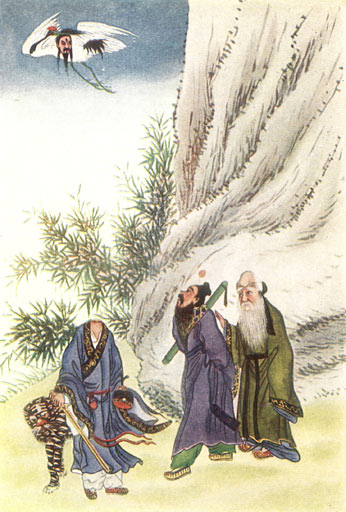|
King Kang Of Zhou
King Kang of Zhou, personal name Ji Zhao, was the third sovereign of the Chinese Zhou Dynasty and son of King Cheng of Zhou. The dates of his reign are 1020–996 BC or 1005–978 BC. King Kang followed his father's policy and expanded the Zhou territory in the North and in the West. He also repressed a rebellion in the east. Life prospered in the Zhou Dynasty under Kang’s rule. His was succeeded by his son King Zhao of Zhou. Chin, Annping. (2007). ''The Authentic Confucius''. Scrubner. Family Queens: * Wang Jiang, of the Jiang clan (), the mother of Crown Prince Xia Sons: * Crown Prince Xia (; 1027–977 BC), ruled as King Zhao of Zhou from 995–977 BC Ancestry See also * Family tree of ancient Chinese emperors This is a family tree of Chinese monarchs covering the period of the Five Emperors up through the end of the Spring and Autumn period. Five Emperors The legendary Five Emperors were traditionally regarded as the founders of the Chinese state. ... Referenc ... [...More Info...] [...Related Items...] OR: [Wikipedia] [Google] [Baidu] |
King Cheng Of Zhou
King Cheng of Zhou (), personal name Ji Song (姬誦), was the second king of the Chinese Zhou dynasty. The dates of his reign are 1042–1021 BCE or 1042/35–1006 BCE. His parents were King Wu of Zhou and Queen Yi Jiang (邑姜). King Cheng was young when he ascended the throne. His uncle, Duke of Zhou, fearing that Shang forces might rise again under the possible weak rule of a young ruler, became the regent and supervised government affairs for several years. Duke of Zhou established the eastern capital at Luoyang, and later defeated a rebellion by Cheng's uncles Cai Shu, Guan Shu and Huo Shu.Hucker, Charles O. (1978). China to 1850: a short history. Stanford University Press. King Cheng later stabilized the Zhou dynasty's border by defeating several barbarian tribes along with the Duke of Zhou. Family Queens: * Wang Si, of the Si clan (), the mother of Crown Prince Zhao Sons: * Crown Prince Zhao (; 1040–996 BC), ruled as King Kang of Zhou from 1020 to 996 BC Ancest ... [...More Info...] [...Related Items...] OR: [Wikipedia] [Google] [Baidu] |
King Wen Of Zhou
King Wen of Zhou (; 1152–1050 BC, the Cultured King) was Count of state of Zhou, Zhou during the late Shang dynasty in ancient China. Although frequently confused with his fourth son Duke of Zhou, also known as "Lord Zhou", they are different historical persons. Although it was his son King Wu of Zhou, Wu who conquered the Shang following the Battle of Muye, Count Wen was posthumously honored as the founder of the Zhou dynasty and posthumously titled King. Many of the hymns of the ''Classic of Poetry'' are praises to the legacy of King Wen. Some consider him the first epic hero of Chinese history. Archaeology Chinese scholars (e.g. Wang Yunwu (:zh:王雲五, 王雲五), Li Xueqin (:zh:李学勤, 李学勤), etc.) identified King Wen with a mentioned in inscriptions H11:82 & H11:84 among oracle bones excavated at Zhouyuan (), Qishan County. Biography Born Ji Chang (), Wen was the son of Tai Ren, Tairen and King Ji of Zhou, Ji Jili, the Count of Predynastic Zhou, Zhou, a vassal ... [...More Info...] [...Related Items...] OR: [Wikipedia] [Google] [Baidu] |
11th-century BC Chinese Monarchs
The 11th century is the period from 1001 ( MI) through 1100 ( MC) in accordance with the Julian calendar, and the 1st century of the 2nd millennium. In the history of Europe, this period is considered the early part of the High Middle Ages. There was, after a brief ascendancy, a sudden decline of Byzantine power and a rise of Norman domination over much of Europe, along with the prominent role in Europe of notably influential popes. Christendom experienced a formal schism in this century which had been developing over previous centuries between the Latin West and Byzantine East, causing a split in its two largest denominations to this day: Roman Catholicism and Eastern Orthodoxy. In Song dynasty China and the classical Islamic world, this century marked the high point for both classical Chinese civilization, science and technology, and classical Islamic science, philosophy, technology and literature. Rival political factions at the Song dynasty court created strife amongst th ... [...More Info...] [...Related Items...] OR: [Wikipedia] [Google] [Baidu] |
Zhou Dynasty Kings
Zhou may refer to: Chinese history * King Zhou of Shang () (1105 BC–1046 BC), the last king of the Shang dynasty * Predynastic Zhou (), 11th-century BC precursor to the Zhou dynasty * Zhou dynasty () (1046 BC–256 BC), a dynasty of China ** Western Zhou () (1046 BC–771 BC) ** Eastern Zhou () (770 BC–256 BC) * Western Zhou (state) () (440 BC–256 BC) * Eastern Zhou (state) () (367 BC–249 BC) * Northern Zhou () (557–581), one of the Northern dynasties during the Northern and Southern dynasties period * Wu Zhou () (690–705), an imperial dynasty established by Wu Zetian * Later Zhou () (951–960), the last of the Five dynasties during the Five Dynasties and Ten Kingdoms period * Zhou (Zhang Shicheng's kingdom) () (1354–1367), a state founded by Zhang Shicheng during the Red Turban Rebellion * Zhou (Qing period state) () (1678–1681), a state founded by Wu Sangui during the Qing dynasty Other uses *Zhou (surname) (), Chinese surname *Zhou (country subdivision) (), a p ... [...More Info...] [...Related Items...] OR: [Wikipedia] [Google] [Baidu] |
996 BC Deaths
Year 996 ( CMXCVI) was a leap year starting on Wednesday (link will display the full calendar) of the Julian calendar. Events By place Japan * February - Chotoku Incident: Fujiwara no Korechika and Takaie shoot an arrow at Retired Emperor Kazan. * 2 March: Emperor Ichijo orders the imperial police to raid Korechika’s residence; Empress Teishi (sister of Korechika) cuts her hair because of the humiliation; Takaie is arrested, Korechika is absent. * 5 March: Korechika returns with his head shaven and attired as a monk. Europe * Spring – King Otto III starts his first expedition to Italy from Regensburg, and proceeds over the Brenner Pass. News of Otto's arrival prompts Crescentius II (the Younger), patrician (the ''de facto'' ruler) of Rome, to invite Pope John XV (exiled in Tuscany) back to Rome. Otto arrives in Verona, and receives ambassadors of Doge Pietro II Orseolo of Venice. * May 21 – Otto III, 16, is crowned Emperor of the Holy Roman Emp ... [...More Info...] [...Related Items...] OR: [Wikipedia] [Google] [Baidu] |
List Of Chinese Monarchs
This list of Chinese monarchs includes rulers of China with various titles prior to the establishment of the Republic in 1912. From the Zhou dynasty until the Qin dynasty, rulers usually held the title "king" (). With the separation of China into different Warring States, this title had become so common that the unifier of China, the first Qin Emperor Qin Shihuang created a new title for himself, that of "emperor" (). The title of Emperor of China continued to be used for the remainder of China's imperial history, right down to the fall of the Qing dynasty in 1912. While many other monarchs existed in and around China throughout its history, this list covers only those with a quasi-legitimate claim to the majority of China, or those who have traditionally been named in king-lists. The following list of Chinese monarchs is in no way comprehensive. Chinese sovereigns were known by many different names, and how they should be identified is often confusing. Sometimes the same empero ... [...More Info...] [...Related Items...] OR: [Wikipedia] [Google] [Baidu] |
Family Tree Of Ancient Chinese Emperors
This is a family tree of Chinese monarchs covering the period of the Five Emperors up through the end of the Spring and Autumn period. Five Emperors The legendary Five Emperors were traditionally regarded as the founders of the Chinese state. The ''Records of the Grand Historian'' states that Shaohao did not accede to the throne while Emperor Zhi’s ephemeral and uneventful rule disqualify him from the Five Emperors in all sources. Other sources name Yu the Great, the founder of the Xia dynasty, as the last of the Five. Pretenders are ''italicized''. Xia dynasty This is a family tree for the Xia dynasty which ruled circa 2000–1750 BC. The historicity of the dynasty has sometimes been questioned, but circumstantial archaeological evidence supports its existence. Shang dynasty This is a family tree for the Shang dynasty, which ruled China proper between circa 1750 BC and 1046 BC.'' Bamboo Annals'' The Shang rulers bore the title Di ( 帝) ... [...More Info...] [...Related Items...] OR: [Wikipedia] [Google] [Baidu] |
King Ji Of Zhou
Jili was a leader of the Predynastic Zhou during the Shang dynasty of ancient China. His son King Wen and grandson King Wu would defeat the Shang to establish the Zhou dynasty. He was posthumously granted the title of king, and often referred to as Ji, King of Zhou. Jili's ancestral name was Ji. He was the youngest son of King Tai. Sima Qian recorded that Jili and his son were both renowned for their wisdom and this reputation caused his elder brothers Taibo and Zhongyong to renounce voluntarily their claims to the throne and to leave in exile to Wu.Sima Qian. ''Records of the Grand Historian'"Annals of Zhou"/ref> Surviving historical records portray him travelling to the Shang capital to submit to Wu Yi and being rewarded with land, jade, and horses in 1118 BC.Bamboo Annals. In 1117, he captured 20 "kings" of the Guirong tribes. During the reign of the Shang king Wen Ding, he was defeated by the Yanjing Rong but managed to subdue the Yuwu (), Hu (), and Xitu () Rong. After ... [...More Info...] [...Related Items...] OR: [Wikipedia] [Google] [Baidu] |
Jiang Ziya
Jiang Ziya ( century BC – century BC), also known by several other names, was a Chinese noble who helped kings Wen and Wu of Zhou overthrow the Shang in ancient China. Following their victory at Muye, he continued to serve as a Zhou minister. He remained loyal to the regent Duke of Zhou during the Rebellion of the Three Guards; following the Duke's punitive raids against the restive Eastern Barbarians or ''Dongyi'', Jiang was enfeoffed with their territory as the marchland of Qi. He established his seat at Yingqiu (in modern Linzi). Names The first marquis of Qi bore the given name Shang. The nobility of ancient China bore two surnames, an ancestral name and a clan name. His were Jiang (姜) and Lü (呂), respectively. He had two courtesy names, Shangfu (尚父; lit. "Esteemed Father") and Ziya (lit. "Master Ivory, Master Tusk"), which were used for respectful address by his peers. The names Jiang Shang and Jiang Ziya became the most common after th ... [...More Info...] [...Related Items...] OR: [Wikipedia] [Google] [Baidu] |
Tai Si
Tai Si (, c. 12th – 11th century BC) was the wife of King Wen of Zhou and is revered as a highly respected woman of History of China#Ancient China, ancient China. She was a descendant of Yu the Great - founder of the Xia Dynasty - and was the mother of ten sons, including King Wu of Zhou - founder of the Zhou Dynasty - and his younger brother the Duke of Zhou. Particularly respected by Wu Zetian, China's only Empress regnant, Tai Si and King Wen were posthumously given the temple names "Shizu" () in 690 AD. Life Tai Si is said to be born in the Youxin clan () of the ancestral name Si, from what is now Heyang County, Shaanxi Province. Han Dynasty historian Sima Qian wrote that she was originally from the older Qi (Henan), State of Qi or State of Zeng, both in and around modern-day Henan Province.''Records of the Grand Historian'' The traditional story regarding Tai Si's rise to queen says that the future King Wen of Zhou, born Chang, was walking along the banks of the Wei Riv ... [...More Info...] [...Related Items...] OR: [Wikipedia] [Google] [Baidu] |
Qi (state)
Qi, or Ch'i in Wade–Giles romanization, was a state of the Zhou dynasty-era in ancient China, variously reckoned as a march, duchy, and independent kingdom. Its capital was Linzi, located in present-day Shandong. Qi was founded shortly after the Zhou overthrow of Shang in the 11th centuryBC. Its first marquis was Jiang Ziya, minister of King Wen and a legendary figure in Chinese culture. His family ruled Qi for several centuries before it was replaced by the Tian family in 386BC. In 221BC, Qi was the final major state annexed by Qin during its unification of China. History Foundation During the Zhou conquest of Shang, Jiang Ziya, a native of Ju County served as the chief minister to King Wu. After King Wu's death, Ziya remained loyal to the Duke of Zhou during the Three Guards' failed rebellion against his regency. The Shang prince Wu Geng had joined the revolt along with the Dongyi states of Yan, Xu, and Pugu. These were suppressed by 1039 BC and Jiang w ... [...More Info...] [...Related Items...] OR: [Wikipedia] [Google] [Baidu] |
King Zhao Of Zhou
King Zhao of Zhou (), personal name Jī Xiá, was the fourth king of the Chinese Zhou dynasty. He ruled from 977/75 BC until his death twenty years later. Famous for his disastrous war against the Chu confederation, his death in battle ended the Western Zhou’s early expansion and marked the beginning of his dynasty’s decline. Biography By the time of King Zhao's coronation, his father King Kang and grandfather King Cheng had conquered and colonized the Central Plains of China, forcing most of the northern and eastern tribal peoples into vassalage. Only the Dongyi of eastern Shandong continued their resistance, but they were no longer a threat to Zhou rule. As result, King Zhao inherited a prospering kingdom, and could afford to build a new ancestral temple for his father. This temple, known as “Kang gong”, was built in line with ritual reforms of the time and would grow into “one of the two central temples of dynastic worship”, the other being the much older “j ... [...More Info...] [...Related Items...] OR: [Wikipedia] [Google] [Baidu] |




